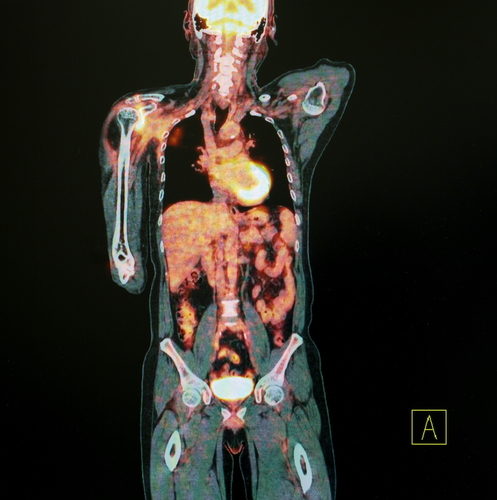This post was originally published on this site A liquid biopsy assay called Resolution HRD is being used in Phase 2 and Phase 3 trials of Zejula (niraparib) to help screen key mutations in prostate cancer patients. Through a blood draw, Resolution Bioscience’s cell-free DNA (cfDNA) assay identifies mutations implicated in homologous recombination deficiency (HRD),…
Category: <span>Blog</span>
Zejula-Keytruda Trial Results Warrant Further Investigation for Recurrent OC
This post was originally published on this site A combination of Zejula (niraparib) and Keytruda (pembrolizumab) is well-tolerated and has promising anti-tumor activity in women with ovarian carcinoma who have failed prior platinum-based chemotherapy, results from a Phase 1/2 trial show. Overall, 18% of the patients responded to the combo regimen, regardless of platinum resistance,…
FDA Lifts Hold on Phase 3 Trial Testing Venclexta in Myeloma Patients with Common Genetic Abnormality
This post was originally published on this site The U.S. Food and Drug Administration (FDA) has lifted its hold on the CANOVA Phase 3 clinical trial, which is evaluating the experimental therapeutic Vencexta (venetoclax) plus dexamethasone in people with relapsed or refractory multiple myeloma who test positive for a common genetic abnormality. Venclexta (sold as Venclyxto…
Trial Will Test Thermal Ablation, Followed By IP-001 Immunotherapy, Against Solid Tumors
This post was originally published on this site Immunophotonics and Clinical Laserthermia Systems (CLS) are teaming up in a Phase 1/2 trial to explore the safety and effectiveness of a thermal ablation approach — destruction of tissue by an extreme temperature increase — followed by injection into the tumor of the investigational IP-001, for treating…
Obesity Reprograms Immune Cells in Mammary Tissues to Promote Tumor Development, Study Says
This post was originally published on this site Obesity in women with triple-negative breast cancer, the most aggressive kind of breast cancer, reprograms immune cells and creates a chronic inflammatory environment that promotes cancer progression and spread, a study has found. The study, “Metabolically activated adipose tissue macrophages link obesity to triple-negative breast cancer,” was…
University of Oklahoma Gets $3.75M Grant to Enhance Dementia Care
This post was originally published on this site To enhance care for the growing number of people with Alzheimer’s and other dementia, the U.S. Department of Health and Human Services (HHS) has awarded the University of Oklahoma Health Sciences Center a $3.75 million grant. The grant will establish a partner-reliant program designed to better…
REGN1979 Eliminated Cancer in Most Non-Hodgkin’s Lymphoma Patients in Phase 1 Trial
This post was originally published on this site Regeneron‘s bispecific antibody REGN1979 is showing outstanding clinical effectiveness in B-cell non-Hodgkin’s lymphoma patients who received prior treatments, including those who progressed after CAR T-cell therapies. The treatment completely eliminated the cancer in 71% of follicular lymphoma and 57% of diffuse large B-cell lymphoma patients participated in…
Cancer Vaccine VBI-1901 Well-Tolerated in Recurrent Glioblastoma Patients, Early Phase 1/2a Data Show
This post was originally published on this site Treatment of recurrent glioblastoma with the investigational cancer vaccine VBI-1901 was well-tolerated and associated with stable disease in a subset of patients, according to findings of a Phase 1/2a trial. The study, “Interim results of a phase I/IIa trial of a therapeutic CMV vaccine against recurrent glioblastoma…
68Ga-PSMA-11 Better than Axumin at Detecting PC Recurrence, Trial Shows
This post was originally published on this site Among men suspected of having prostate cancer recurrence after surgery, the radiotracer 68Ga-PSMA-11 is better at detecting the cancerous lesions and provides better agreement among experts than the standard Axumin (18F-fluciclovine) tracer, a Phase 2 trial shows. The results were presented at the 2019 Society of Nuclear…
Lynparza Approved in Japan as First-Line Maintenance Therapy for Advanced OC
This post was originally published on this site Lynparza (olaparib) has been approved in Japan as a first-line maintenance treatment for women with BRCA-mutated advanced ovarian cancer that is responding, partially or completely, to their initial chemotherapy, AstraZeneca and Merck (known as MSD outside the U.S. and Canada) announced. Similar approvals have previously been granted in the U.S.,…











